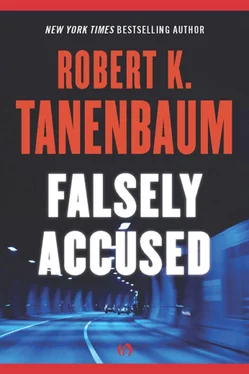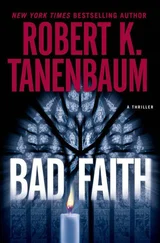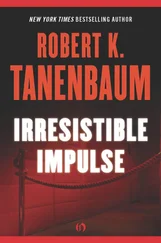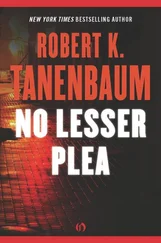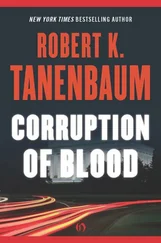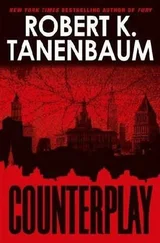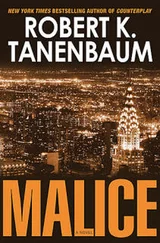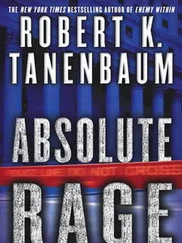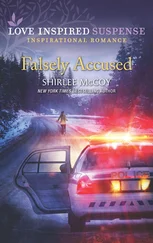Robert Tanenbaum - Falsely Accused
Здесь есть возможность читать онлайн «Robert Tanenbaum - Falsely Accused» весь текст электронной книги совершенно бесплатно (целиком полную версию без сокращений). В некоторых случаях можно слушать аудио, скачать через торрент в формате fb2 и присутствует краткое содержание. Год выпуска: 2010, Издательство: Open Road Integrated Media, Жанр: Криминальный детектив, на английском языке. Описание произведения, (предисловие) а так же отзывы посетителей доступны на портале библиотеки ЛибКат.
- Название:Falsely Accused
- Автор:
- Издательство:Open Road Integrated Media
- Жанр:
- Год:2010
- ISBN:нет данных
- Рейтинг книги:5 / 5. Голосов: 1
-
Избранное:Добавить в избранное
- Отзывы:
-
Ваша оценка:
- 100
- 1
- 2
- 3
- 4
- 5
Falsely Accused: краткое содержание, описание и аннотация
Предлагаем к чтению аннотацию, описание, краткое содержание или предисловие (зависит от того, что написал сам автор книги «Falsely Accused»). Если вы не нашли необходимую информацию о книге — напишите в комментариях, мы постараемся отыскать её.
Falsely Accused — читать онлайн бесплатно полную книгу (весь текст) целиком
Ниже представлен текст книги, разбитый по страницам. Система сохранения места последней прочитанной страницы, позволяет с удобством читать онлайн бесплатно книгу «Falsely Accused», без необходимости каждый раз заново искать на чём Вы остановились. Поставьте закладку, и сможете в любой момент перейти на страницу, на которой закончили чтение.
Интервал:
Закладка:
The district attorney took it from Karp’s hand as if it were a used Kleenex. It was the third day of his testimony. The courtroom was packed with spectators, including a larger than usual contingent from the press. In some mysterious sharklike fashion, the press smelled blood, and the reporters were more than usually avid for it, Bloom having spent a significant amount of time cultivating them. Nothing delights reporters as much as nailing people who have gone out of their way to be nice to them.
Bloom was holding up fairly well, considering the battering he had received. Karp had used his time with Bloom on the stand to go through the four cases that figured in the charges in Bloom’s memo, not so much to demonstrate their hollowness, which he had already done with other witnesses, but to show that the district attorney had no real idea of how his office operated in homicide cases, and thus was not qualified to judge how Dr. Selig did his job.
Bloom glanced at the letter and shrugged. “I sign a lot of letters”-meaning, how can I expect to remember this trivial crap? He smiled at the courtroom, but turned off the teeth when Judge Craig snapped from the bench, “Just answer the question!”
“Yes, this is my letter,” said Bloom.
“Thank you,” said Karp. “Would you read the indicated passage to the court?”
Bloom read, in a bored monotone, “Dear Dr. Selig, I would like to thank you very much for your superb participation in People versus Ralston, which has just concluded with convictions on all counts. Marsha Davis, the assistant district attorney in charge, tells me that you enabled her to understand the significance of the medical testimony in the case, and the forensic issues that arose during cross-examination, enabling her to respond most effectively in a way that would not otherwise have been possible.”
“Thank you. So Dr. Selig was competent, highly competent, in January, and fit to be dismissed, a disaster, in July-in your considered opinion?”
“Yes,” said Bloom confidently, ignoring the inherent absurdity of that answer. He had learned something from Dr. Fuerza’s miseries and was prepared to brazen out the conflict between the golden opinions of winter and the poisoned barbs of summer.
“So Dr. Selig’s performance must have deteriorated in those six or so months?”
“Not necessarily. I was apprised of facts that I did not know when I wrote that letter.”
“The facts do not exist, as we have seen here in testimony after testimony.”
Bloom smiled. “The facts are for the jury to decide.”
Karp smiled back and turned to the jury to show them he was happy. “Thank you, sir. I stand instructed. But the facts aside, isn’t it your judgment that we are dealing with here, based on your understanding of how the criminal justice system ought to work, in comparison to which Dr. Selig’s performance-pardon me, his spring and summertime performance-falls seriously short?”
“Yes, in my judgment.”
“Mm-hmm, now returning to the Ralston case, you cited Dr. Selig for disrupting the trial by not appearing at the appointed time. Would you care to tell us how this disruption occurred?”
“Objection, Your Honor,” said Wharton. “Repetitious. We’ve had all this before.”
“Your Honor,” said Karp, “the purpose of this line of questioning is to determine the qualification of the witness to make a judgment on the performance of Dr. Selig during trial.”
A moment of stunned silence. Then Wharton burst out, “This is preposterous, Your Honor. The witness is the district attorney. ”
“Plaintiff has made no stipulation as to the expertise of the witness in trial procedure,” said Karp equably. “His official position is no guarantee thereof.”
The ghost of a smile flickered over the judge’s chalk-line mouth. “Overruled. Proceed, Mr. Karp.”
“Thank you, Your Honor. Mr. Bloom, would you give the jury some sense of how exactly this disruption was accomplished?”
“Well, basically, you arrange your witnesses, when you’re trying a case, in a certain way. You want to get all the medical witnesses onto the record before you call the defendant, for example.”
Karp struggled to keep his face neutral. He moved slightly so that he obscured the line of sight from Bloom to the defendant’s table. “I see, so the prosecution wants to get all its ducks in a row before they call the defendant up there to testify, is that what you’re telling us?”
“Yes.”
“Tell me, Mr. Bloom, is it normal for the prosecution to call the defendant to testify?”
Wharton objected and the judge quashed him instantly. He seemed fascinated with what was happening.
Bloom’s noble forehead creased slightly. It sounded like a trick question. But it couldn’t be; on TV the defendant was always yapping up there on the stand, while Perry Mason was finding the real killer. “Only when necessary,” he said. A good compromise answer.
“Mr. Bloom,” said Karp, his voice rising, “are you not aware that the Fifth Amendment to the United States Constitution absolutely forbids the prosecution to call the defendant to testify?”
“I … what I …”
“And are you aware that this prohibition is central to our whole process of justice, the trial system that you as district attorney have the responsibility to manage?”
“Yes, what I meant was …” Bloom’s mind went blank. He didn’t know what he meant. His eyes met Karp’s. Karp might have been looking at a patch of vomit.
“You’ve never tried a homicide case, have you, Mr. Bloom?”
“No, but I’ve-”
“And so you are utterly incompetent to pass judgment on any aspect of how homicide cases are run, including the role of the medical examiner, isn’t that so?”
“No, my subordinates-my subordinates informed me-
“Your subordinates. But your subordinates didn’t fire Dr. Selig, did they?”
“No, the Mayor did.”
“And the Mayor relied primarily on your advice, didn’t he?”
“He took it into account, but-”
“Because you’re the expert, the expert on the criminal justice system, right?”
“I felt it was necessary,” said Bloom lamely.
“Why? Why, Mr. Bloom, was it necessary to fire Dr. Selig? What occurred between winter, when he was brilliant enough to prompt letters of commendation from the D.A., and July, when he had to be fired?”
“I don’t know what you mean.”
“No? What happened at the end of May that made it absolutely necessary for you to get rid of Dr. Murray Selig, a great and independent medical examiner and put your own creature in his place?” Karp had slowed his delivery, lowered the timbre and raised the volume of his voice, making it as much like that of Jehovah in the desert as he could manage, all the while staring at Bloom and delivering the unspoken message: “I know!” The D.A.’s paint was crisping nicely.
“What was it, Mr. Bloom? What was it you did not want Dr. Selig to discover ?”
“Nothing! Nothing! ” Bloom’s voice had cracked on the repetition on this word. Wharton rose to object. Murmurs began among the spectators; the jury was transfixed, frozen, each juror frantic to know what the nothing was that was clearly something. The murmurs grew. Craig frowned and struck his gavel.
Karp said, in his most carrying voice, “Your Honor, the plaintiff’s case is concluded.” He turned on his heel and walked back across the bloodied sands. Spanish maidens threw roses.
SEVENTEEN
Marlene had just picked up Lucy and was looking for a parking place near D’Agostino’s on Sheridan Square when her beeper went off. Marlene cursed under her breath and turned to her daughter, sitting in the seat beside her.
Читать дальшеИнтервал:
Закладка:
Похожие книги на «Falsely Accused»
Представляем Вашему вниманию похожие книги на «Falsely Accused» списком для выбора. Мы отобрали схожую по названию и смыслу литературу в надежде предоставить читателям больше вариантов отыскать новые, интересные, ещё непрочитанные произведения.
Обсуждение, отзывы о книге «Falsely Accused» и просто собственные мнения читателей. Оставьте ваши комментарии, напишите, что Вы думаете о произведении, его смысле или главных героях. Укажите что конкретно понравилось, а что нет, и почему Вы так считаете.
